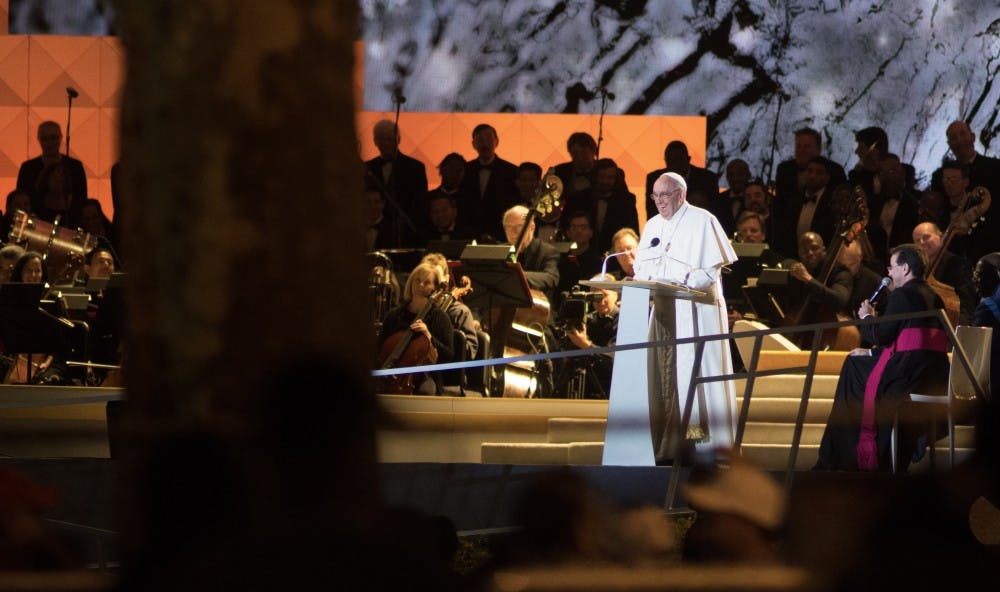
According to a new study, a recent encyclical issued by Pope Francis did not have much impact on changing Catholics' opinions on climate change.
Credit: Amanda SuarezPope Francis' plea for climate change action backfired among conservative Catholics, according to an Oct. 24 study published by the Annenberg Public Policy Center.
The study sought to investigate whether a religious authority could influence public opinion on such a politically-polarized topic. The researchers analyzed the perception of Francis’s 2015 encyclical entitled “Laudato si,” which emphasizes the need to address climate change as a moral imperative.
According to the study, an increase in politically-polarized views on climate change correlates with an awareness of the Pope’s encyclical. Conservative Catholics aware of the encyclical devalued the Pope’s credibility on climate change because they felt “cross-pressured by the inconsistency between the pontiff’s views and those of their political allies,” the study said. These encyclical-aware conservatives felt less concerned about climate change than conservatives who weren’t aware of it. On the left, those who were more aware of the encyclical expressed more concerns about climate change than those who were not aware.

The study also found, more generally, that “Laudato si” did not raise broad public concern about climate change. Though Catholics attributed higher credibility to the Pope on climate change than non-Catholics, awareness of “Laudato si” was not associated with an increase in public concern over climate change.
The study’s primary author, Texas Tech University professor Nan Li, who researched the study as a postdoctoral fellow at The Annenberg Public Policy Center last year, said in an interview how Annenberg’s resources aided her in completing the study.
“We have a lot of resources to rely on,” Li said. She specifically identified her postdoctoral colleagues and Annenberg’s many visiting scholars for their assistance in her research. Data from Annenberg Science Knowledge surveys, conducted before and after the release of the 2015 encyclical, formed the basis of the study.
The study “demonstrates the ineffectiveness of communicating climate science in a certain way,” Li said, alluding to the Pope’s inability to sway his conservative followers into reconsidering their stance on climate change.
Prior to the study, many assumed that an authority figure as prominent as the Pope might be able to influence public opinion. The implications of the study are especially important for those concerned with communication about climate change in polarized environments. The study’s results suggest that “worldviews, political identities and group norms that lead conservative Catholics to deny climate change override their deference to religious authority when judging the reality and risks of this phenomenon."
Other Annenberg-affiliated authors of the study were Annenberg postdoctoral research fellow Joseph Hilgard, former visiting scholar Dietram A. Scheufele and faculty members Kenneth Winneg and Kathleen Hall Jamieson.
The Daily Pennsylvanian is an independent, student-run newspaper. Please consider making a donation to support the coverage that shapes the University. Your generosity ensures a future of strong journalism at Penn.
Donate




